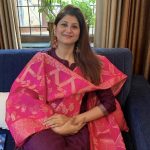Course Information
- 2024-25
- CSO214
- 5-Year B.A., LL.B. (Hons.), 3-Year LL.B. (Hons.), LL.M.
- III, IV, V
- Nov 2024
- Elective Course
The first amendment to the Constitution of The USA – world’s oldest democracy – transformed freedom of speech into an absolute right, while here in India – world’s largest democracy – the first amendment “reasonably restricted” the right to free speech under Article 19(1)(a) in the interest of eight other democratic goals mentioned under Article 19(2). This constitutional emphasis on balancing free speech against other democratic goals has led to ongoing judicial interpretations and vague judgments that leave the scope of Article 19(1)(a) unclear. With the result, even after 78 years of independence, it’s still hard for Indian citizens to predict which expressions might be legitimately restricted under Article 19(2), resulting in jail time. This coursework explores the causes of this ambiguity, its “chilling effect” on free speech, and potential policy solutions to clarify these legal uncertainties. In this regard, the course begins with a discussion on the theoretical weakness of western free speech arguments, finding the roots of this weakness in the nature of the modern self, empirically proving this assertion through the contradictions of Indian legal jurisprudence on free speech and their policy implications, and finally proposing an alternative philosophical foundation within India’s indigenous traditions of Vada to tease out an ‘Indian discourse on free speech’. The choice of materials includes primary readings on landmark judicial decisions, Constituent Assembly Debates, and select excerpts from foundational texts in Western and Indian philosophy. Additionally, portions of secondary readings from leading legal and philosophical scholars have also been subscribed. This course accordingly examines foundations of India’s Constitutional Law, Legal Theory, and Political Philosophy by providing a deep, critical examination of the specific legal, philosophical, and policy dimensions of free speech in India as a specific model of study. It serves both as an advanced course for students who have completed prior studies in constitutional frameworks and a standalone option for those interested in exploring the Indian discourse on freedom of speech from an interdisciplinary perspective. During each session students would be addressed through different pedagogical approaches, combining lectures, socratic discussions, seminar-style debates, case study analyses, and group presentations. Each session will focus upon encouraging active student participation, critical reflection, and collaborative exploration of complex legal and philosophical themes. Term papers and group work have also been integrated to develop analytical skills and foster a deeper understanding of the course material.


